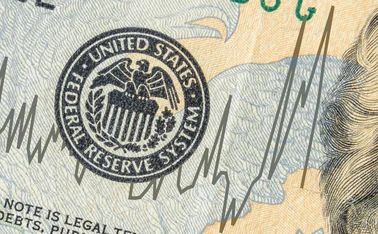
Dollar depreciation reflects value: IMF's Lipsky
Lipsky also warned that the euro was overvalued and that currencies in many current-account-surplus countries, including China, remain substantially undervalued.
The IMF's analysis of real exchange rate levels show the dollar to have declined by 25% since early 2002 - what Lipsky described as "one of the largest sustained episodes of dollar depreciation in the post-Bretton Woods era."
The deputy managing director said similarities existed between the current depreciation and past episodes. "The largest previous such episode - where the dollar depreciated by over 30% in real effective terms - took place between 1985 and 1991, also against the background of a large US current-account deficit," said Lipsky. "In both episodes, the pace of depreciation was relatively gradual, with daily changes below 2-3% in nominal effective terms. In both cases, the US currency in broad terms moved in line with shifts in interest rate differentials."
He added: "Moreover, in the earlier case, the dollar depreciation episode ended with the US currency's level roughly consistent with broad, medium-term equilibrium, as per Fund calculations. Following the post-2002 decline, we assess that the US currency today is the closest to its medium-term equilibrium value in a decade."
Reserve currency
The dollar would, he said, retain its central role as the global reserve currency.
"The latest combination of developments has even given rise to speculation about potential evolution in the constellation of international reserve currencies," Lipsky said. "Notwithstanding the dramatic claims by some, there is no doubt that the dollar will retain the central role, even though it may gradually share the stage with other currencies to a greater degree than at present."
He added: "While the dollar will not be replaced as the dominant international currency, it is quite likely that, eventually, the dollar will begin to share this role with the euro."
Euro
The euro, said Lipsky, "overvalued relative to medium-term fundamentals, while the currencies of many current account surplus countries, including China, remain substantially undervalued, despite a small appreciation in real effective terms."
"The lack of adjustment in the currencies of several economies with inflexible exchange rate regimes and large external surpluses has not been supportive of an adjustment in global imbalances," Lipsky said. "Moreover, to the extent that real appreciation in these currencies has taken place more recently, it is largely due to accelerating inflation - hardly an ideal outcome."
Only users who have a paid subscription or are part of a corporate subscription are able to print or copy content.
To access these options, along with all other subscription benefits, please contact info@centralbanking.com or view our subscription options here: http://subscriptions.centralbanking.com/subscribe
You are currently unable to print this content. Please contact info@centralbanking.com to find out more.
You are currently unable to copy this content. Please contact info@centralbanking.com to find out more.
Copyright Infopro Digital Limited. All rights reserved.
As outlined in our terms and conditions, https://www.infopro-digital.com/terms-and-conditions/subscriptions/ (point 2.4), printing is limited to a single copy.
If you would like to purchase additional rights please email info@centralbanking.com
Copyright Infopro Digital Limited. All rights reserved.
You may share this content using our article tools. As outlined in our terms and conditions, https://www.infopro-digital.com/terms-and-conditions/subscriptions/ (clause 2.4), an Authorised User may only make one copy of the materials for their own personal use. You must also comply with the restrictions in clause 2.5.
If you would like to purchase additional rights please email info@centralbanking.com







